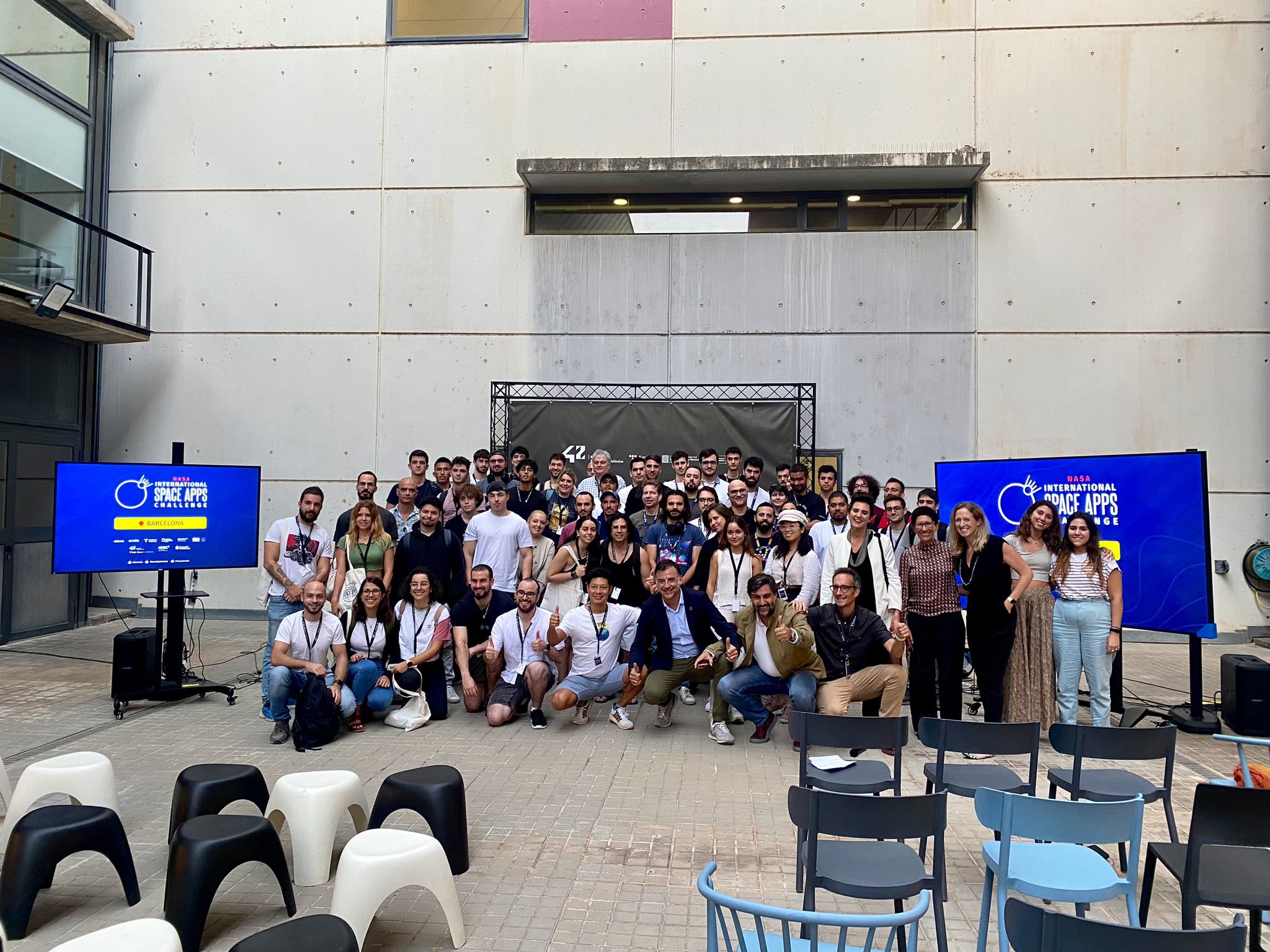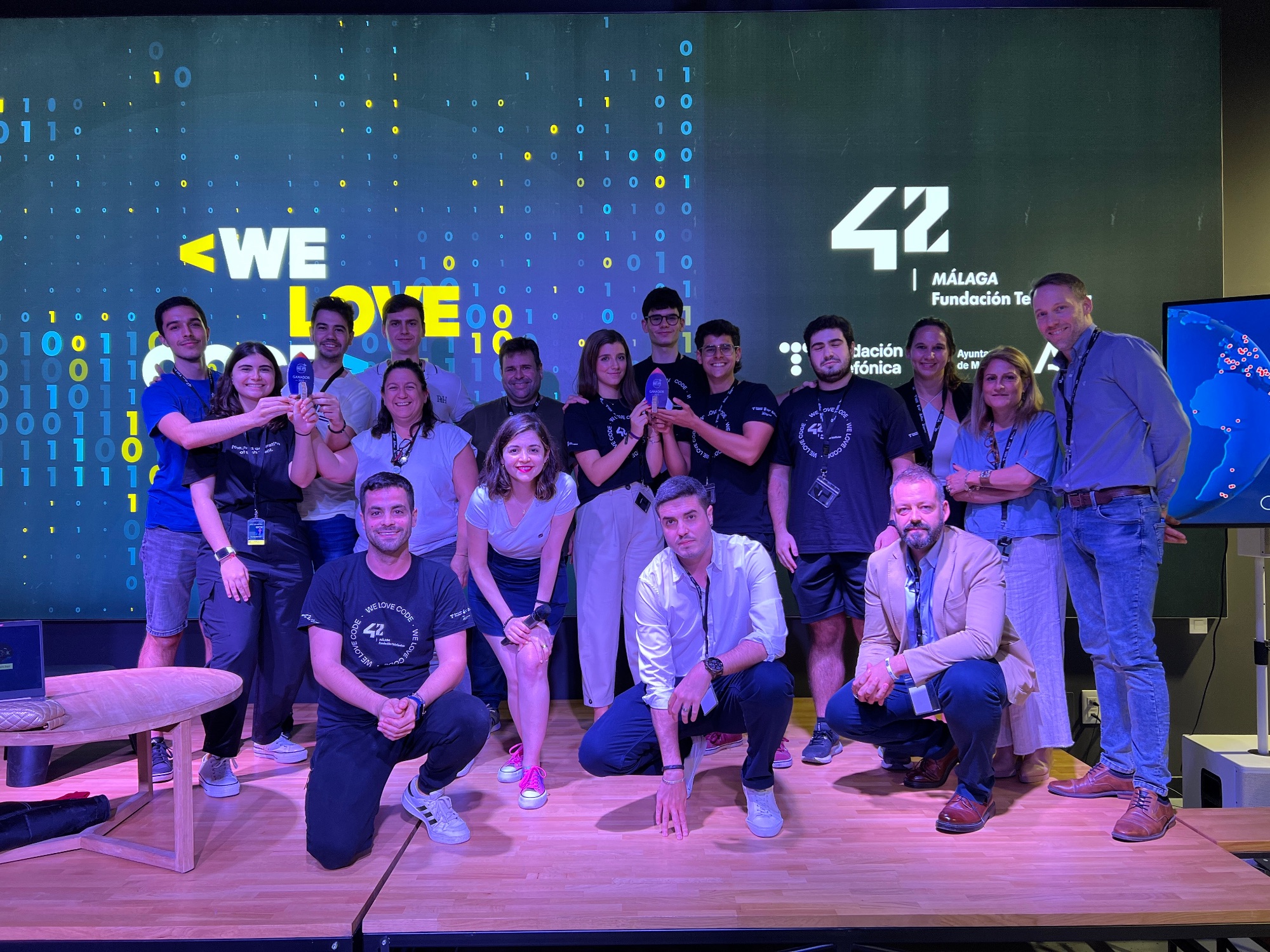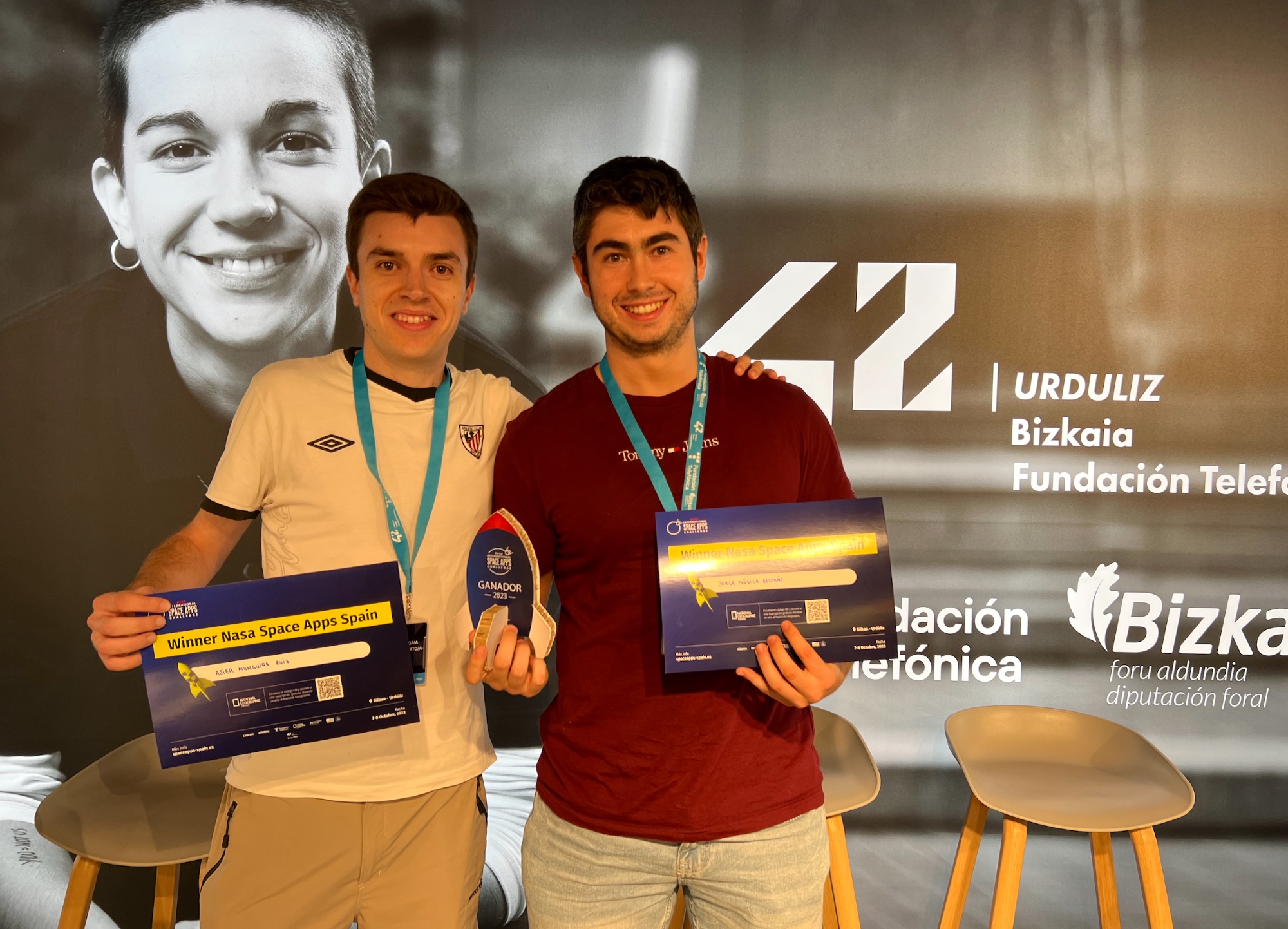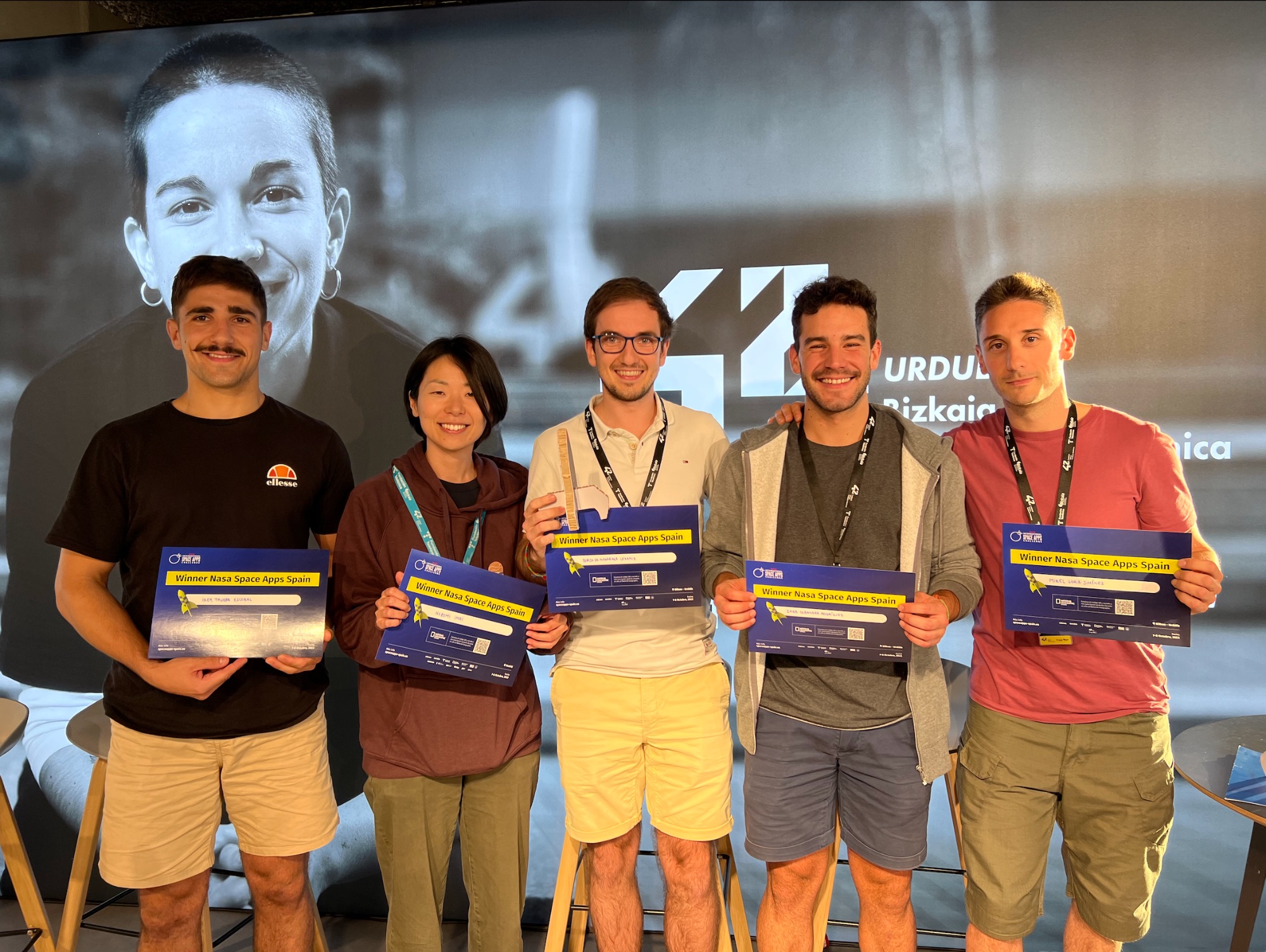09.10.2023
«Firewatchers and Aurotigger, solutions created by Campus 42 students, among the winners of NASA International Space Apps Spain
Barcelona, Madrid, Seville, Malaga, Leon and Urduliz (Bizkaia), where more than 500 people have joined the 50,000 people worldwide to take on the 30 challenges set by NASA.
«Firewatchers and Aurotigger, solutions created by Campus 42 students, among the winners of NASA International Space Apps Spain
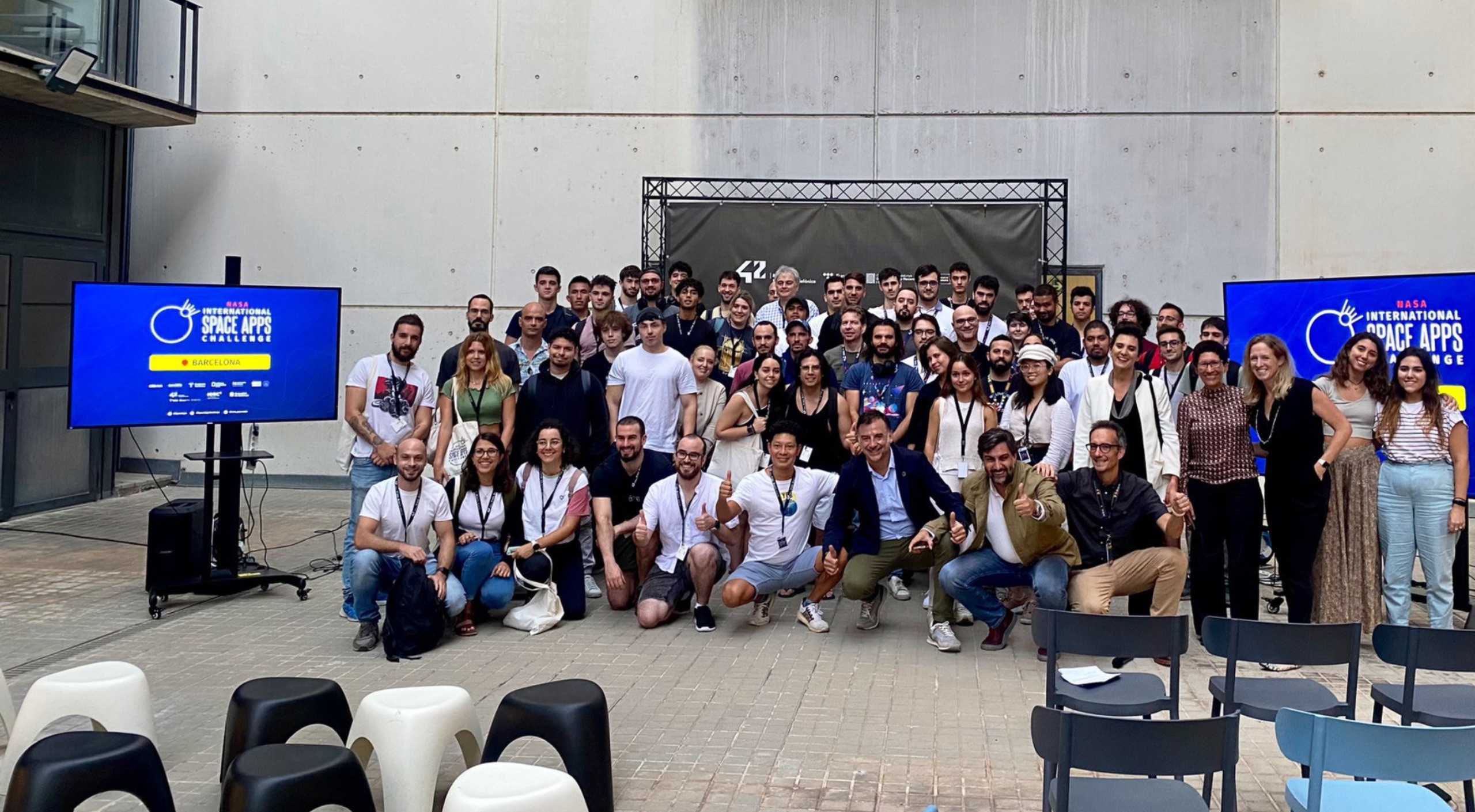
Two teams made up of students from campus 42 move on to the next stage of the competition. #SpaceApps #Programming
Our programming campuses 42 Barcelona, 42 Urduliz (Bizkaia) and 42 Malaga have been the scene of the world’s largest hackathon organised by NASA in the world. For 48 hours, nearly 200 people participated in the 42 campuses in the competition to develop technological solutions to real challenges posed by NASA scientists and engineers.
This year, the event was a resounding success and more than 50,000 people worldwide participated in this two-day global hackathon, promoted by NASA and supported by 9 space agencies around the world.
Winners in Urduliz
One of the two winning teams at 42 Urduliz was “AutoTigger”, made up of five students from the campus who have tackled the challenge of creating a publicly accessible programme that analyses the components of the interplanetary magnetic field measured by satellites. This data is used to monitor and predict magnetic reconnection events, a process that can have an impact on space weather and terrestrial systems. In addition, the team members plan to create an early warning system and provide open data for use in a variety of areas, such as physics research projects.
The other winner was “TeamRocket”, a two-person team that has devised a game that encourages open science and interest in planetary exploration. This game allows users to learn STEAM subjects and promotes teamwork through challenges that simulate exploration and survival experiences in the colonisation of planets or moons such as Titan, the icy moon of the planet Saturn. It can be played by children from the age of 6 and seeks to instil values such as global collaboration, diversity and curiosity in children from an early age.
The specialist jury was made up entirely of women: Oiana Niebla, open innovation manager at Sener and dean of the Official College of Telecommunications Engineering of the Basque Country, Zaloa Campillo Mandaluniz, manager of the College of Telecommunications Engineers of the Basque Country and councillor for Modernisation and Citizen Services of Getxo, and Laura Mallo, professor of automation and industrial robotics, Zalaibar Arratiako Lanbide Ikastegia were responsible for selecting the two winning teams from the 11 participating teams.
Winners in Malaga
The multidisciplinary team, “Firewatchers”, made up of six students from Fundación Telefónica’s 42 Málaga programming campus, was another of the winning teams. The solution, proposed by this team with a passion for technology, consists of an artificial intelligence system that aims to help the authorities detect fires so that they can take measures to extinguish them and inform the population. Using neural networks to process data, its main purpose is to prevent and respond quickly to forest fires.
The other winner was the “EcoFlush” team, composed of three computer engineers and a mathematician from the University of Granada. Their project addresses the problems of water scarcity and flooding through innovative Big Data and Artificial Intelligence solutions in water management. It uses NASA data and sensors to monitor and manage water levels, preventing floods and distributing water efficiently. The project focuses on sustainability and accessibility by sharing code and data publicly.
Winners in Barcelona
The two winning teams in Barcelona were “Delfos Freaks”, made up of four computer science and physics students from the Universitat Politècnica de Catalunya who developed an artificial intelligence system that uses DSCOVR satellite data to predict geomagnetic storms that affect important systems such as GPS and power grids. They have designed a neural network to process this data and improve the accuracy of the predictions so that organisations have relevant information to protect their satellites and predict the impact on communications networks.
The other winner was “Galactic Space Coders”, a team of enthusiastic web developers, including a student from Campus 42 Barcelona. Their winning project was “The Phytoplankton Adventure”, an educational web game that immerses players in the world of phytoplankton and the oceans. Players care for their own virtual phytoplankton, learning about the oceans, climate change and the importance of phytoplankton. As the phytoplankton grow, players understand their role in balancing the oceans and fighting climate change by absorbing carbon dioxide. The project is free on GitHub and is aimed at students to raise awareness of the importance of the oceans and phytoplankton in a fun way.
The 12 winning projects in this first phase held in Spain will be evaluated along with the other finalists by a committee of experts between October and December and the 10 best will be chosen to present their solutions to NASA experts at the Kennedy Space Center (Cape Canaveral, USA).
